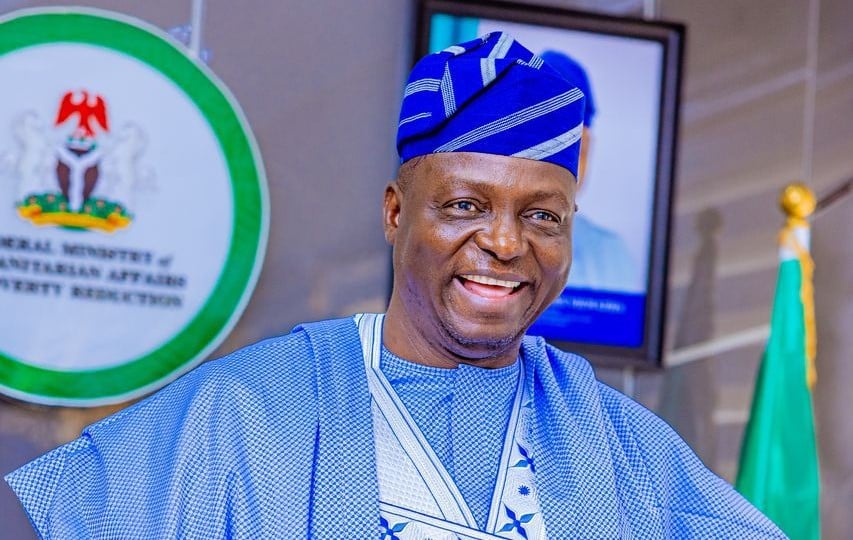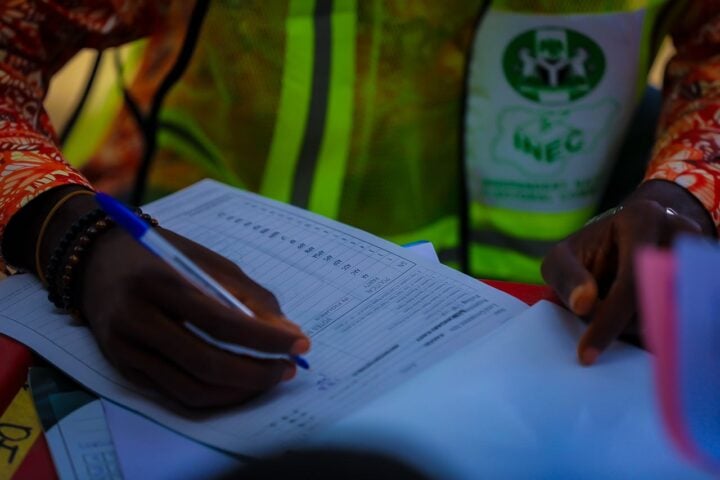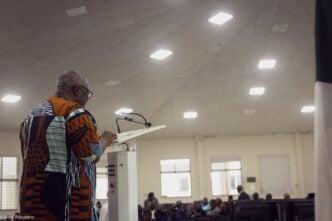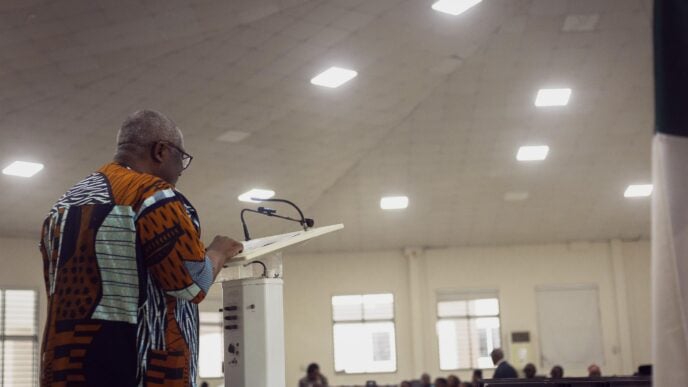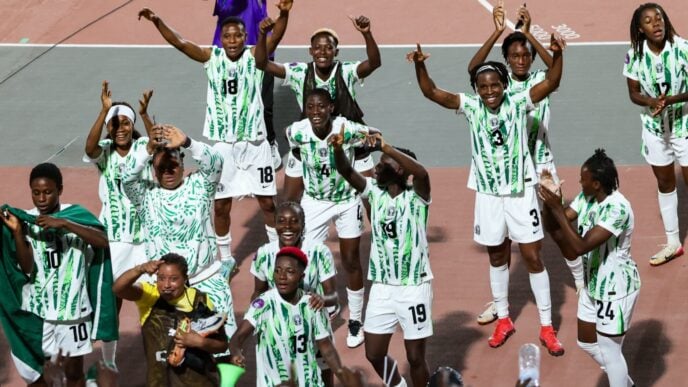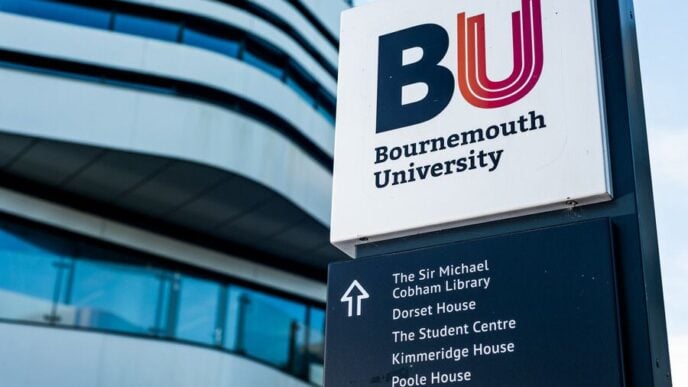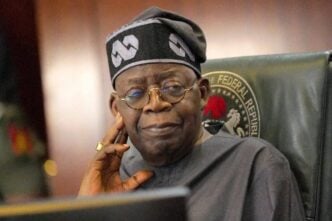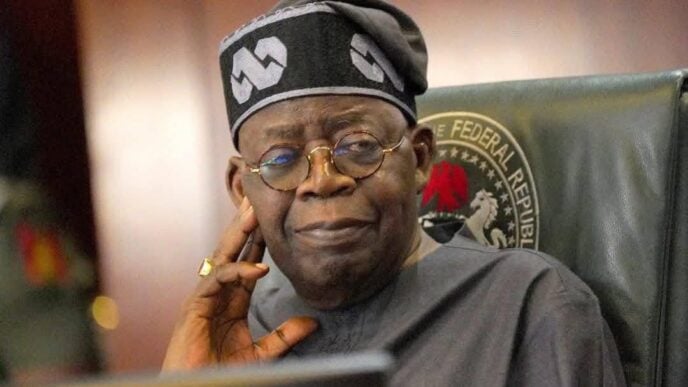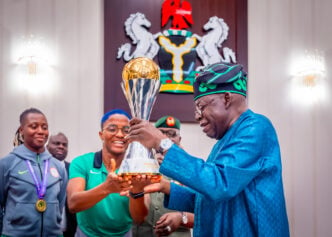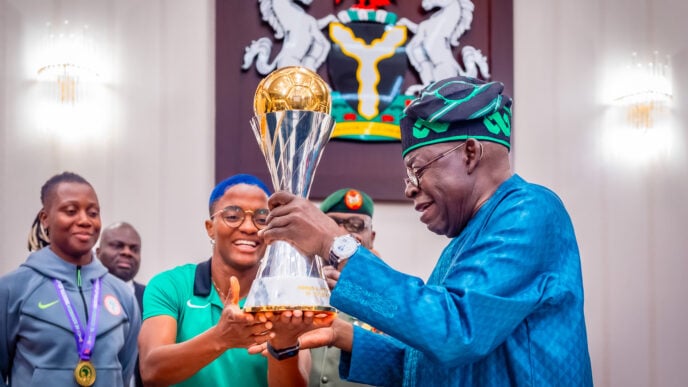Nentawe Yilwatda
The recent appointment of Professor Nentawe Goshwe Yilwatda as the National Chairman of Nigeria’s ruling All Progressives Congress (APC) has sparked intense debate about the integrity of the country’s electoral system and the blurred lines between impartiality and partisanship. Yilwatda, a former Resident Electoral Commissioner (REC) of the Independent National Electoral Commission (INEC) and, until last week, the Minister of Humanitarian Affairs, now leads the very party whose candidates’ elections he once oversaw as an electoral umpire. This development raises critical questions: Was Yilwatda truly neutral while serving as an electoral umpire? Does his transition into partisan leadership undermine public trust in INEC? And is Nigeria long overdue for the electoral reforms proposed by the late Justice Mohammed Uwais?
The above were some questions begging for answers. But in a dramatic twist that strikes at the very soul of democratic ethics and electoral integrity, Professor Yilwatda, despite his being a former REC of the INEC, emerged as the new substantive National Chairman of Nigeria’s ruling party, the APC.
Does anyone still remember the tragiconedy that took place in Adamawa State on Sunday, April 16, 2023? In case you’ve forgotten, let me refresh your memory. I did piece on this page, about two-and-a-half years ago, captioned, “Adamawa tragicomedy: An opportunity President Buhari needs”. In the said article, I write on how the “resident electoral commissioner (REC), Mr. Hudu Yunusa-Ari, instead of the ‘Returning Officer’, Professor Muhammad Mele, announced the result, a day after the completion of the supplementary gubernatorial election, which took place on Saturday, March 15, 2023, by declaring Senator Aishat Binani of the All Progressives Congress (APC), who was trailing (the incumbent) Governor Ahmadu Fintiri of the People’s Democratic Party (PDP) by over 30,000 votes as the winner.” Who knew where Yunusa-Ari’s political sympathy lied then?
Yilwatda’s career trajectory is as impressive as it is controversial. Between 2017 and 2021, he served as INEC’s REC in Benue State, where he was praised for initiatives such as expanding voting access for internally displaced persons (IDPs) and people with disabilities . Yet, just a year after resigning from INEC in December 2021, he contested the Plateau State governorship election under the APC in 2023—a move that suggests his political ambitions were brewing while he was still an official of the institution saddled with the constitutional responsibility of being an electoral umpire.
Advertisement
This abrupt shift from umpire to partisan player is what is drawing criticism. Critics argue that his swift transition into active politics casts doubt on his neutrality while at INEC. “Could he have been a politician in disguise,” leveraging his position to build networks for future partisan roles? The optics are troubling, particularly in a country where electoral credibility is already fragile. Social media reactions have been scathing, with some Nigerians calling the appointment a “rigging strategy” ahead of the 2027 elections.
While some may celebrate this ascension as the triumph of technocracy and experience, it raises a chilling question: What happens to public trust when, in a football match, the referee becomes the striker?
The Slippery Slope of Compromised Neutrality
Advertisement
To many Nigerians, especially those who have suffered under the weight of disputed elections, Yilwatda’s trajectory sends the wrong signals. A REC is expected to be the embodiment of neutrality—an electoral priest, consecrated to serve the republic, not a political godfather in disguise.
His transition from “electoral umpire” to “partisan chief” raises uncomfortable suspicions. Was he, during his time at INEC, a closet loyalist of the ruling party? Did his actions then reflect a hidden allegiance, masked by institutional robes? With due respect to his presumed neutrality, could the new APC chairman have done something similar to what his Adamawa counterpart did (or even something worse), but went undetected? Nobody knows?
These are not trivial questions. In a polity where perception is as powerful as fact, the optics of this appointment reek of institutional compromise. It chips away at what little is left of Nigerians’ trust in the electoral process.
It would be recalled that, the Senate, on the 13th of February 2021, rejected the nomination of Lauretta Onochie as a national commissioner for the electoral umpire, INEC, representing Delta State, while serving as the “Personal Assistant to the President (Muhammadu Buhari) on New Media”. Senator Kabir Gaya (representing Kano South) raised the objection to the confirmation, and it was upheld. In addition to being President Buhari’s appointee, Senator Gaya said she was disqualified based on federal character principles, adding that there is currently a serving commissioner from Delta State, where she hails from. The understanding then among those who were opposed to her appointment was that she must have lost the capacity to be neutral, having served under a party she would view as a benefactor, and may therefore not be able to uphold the law, especially where doing so would not serve the partisan interest of the ruling party, the APC.
Advertisement
When Reform Becomes a National Imperative
The Justice Mohammed Uwais Electoral Reform Committee, established in 2007, seemed to have foreseen this very crisis. Among its landmark recommendations was the need for an independent process of appointing the INEC Chairman (and other commissioners), separate from the executive arm.
The controversy surrounding Yilwatda’s appointment underscores a deeper systemic issue—Nigeria’s flawed electoral appointment process. The late Justice Uwais, in his landmark 2008 Electoral Reform Committee (ERC) report, proposed radical changes to insulate INEC from political interference. Key among his recommendations was the removal of the president’s exclusive power to appoint INEC’s Chairman and commissioners. Instead, he suggested that the National Judicial Council (NJC) handle these appointments to ensure neutrality .
Had this recommendation been implemented, individuals like Yilwatda, who later joined partisan politics, might have faced stricter scrutiny before being appointed as RECs. The Uwais report also advocated for:
– “Fixed, non-renewable tenures” for INEC officials to reduce executive influence.
– “Direct funding from the Consolidated Revenue Fund” to prevent financial manipulation.
– “An independent Electoral Offenses Commission” to prosecute electoral malpractice.
Advertisement
Yet, successive administrations, both PDP and APC, have danced around this proposals like a fire they dare not touch, afraid of surrendering control of the machinery that legitimizes their hold on power.
But now, with the elevation of a former REC to the very helm of the party he might have indirectly favored, the nation stands at a dangerous crossroads. If a supposed referee can switch jerseys so easily in a football match, without consequence, then the entire competition was likely rigged from the start.
Advertisement
What This Means for 2027 and Beyond
This development doesn’t just cast a shadow on past elections; it sets a precedent for future abuse. It sends a message to current and future electoral officials: play nice with the ruling party, and there may be rewards waiting down the road.
Advertisement
In the run-up to 2027, this creates fertile ground for electoral cynicism, political apathy, and civil unrest. The ground for preemptive complaints of flawed process, due to the INEC lack of impartiality is solidly laid with the appointment. This is capable of extinguishing the faith of Nigerians in what remains of INEC’s capacity to conduct a free, fair, and credible election. But Nigeria cannot afford another cycle where elections are considered elaborate rituals of pre-wrtten results. We need the active and enthusiastic participation of every citizen in the process to further deepen the roots of our hard-earned democracy.
In conclusion, it is time to draw the line. Professor Yilwatda’s new role may serve his political ambitions, but it does massive violence to the credibility of Nigeria’s electoral architecture. If the line between umpire and player remains this blurred, Nigeria’s elections will continue to be contests not of the people’s will but of elite manipulations. If care is not taken, this may ensure that the tradition of, “every election’s result being contested in, and ultimately decided by, the (election tribunal) court continues. That will further monetise the already heavily-monetised electoral process, and lead to further alienation of the masses from participating because it is too capital intensive.
Advertisement
The time has come, for the Tinubu-led administration to revisit the Justice “Uwais Report”, not as a mere political document, but as a national blueprint for “electoral sanity”. We must build a system where INEC officials are not politicians in-waiting or in closet, but patriots in service of democracy.
Only then can we reclaim our democracy from the shadows of partisanship and restore faith in the ballot as the true voice of the people.
Abubakar writes from Ilorin. He can be reached via 08051388285 or [email protected]
Views expressed by contributors are strictly personal and not of TheCable.

